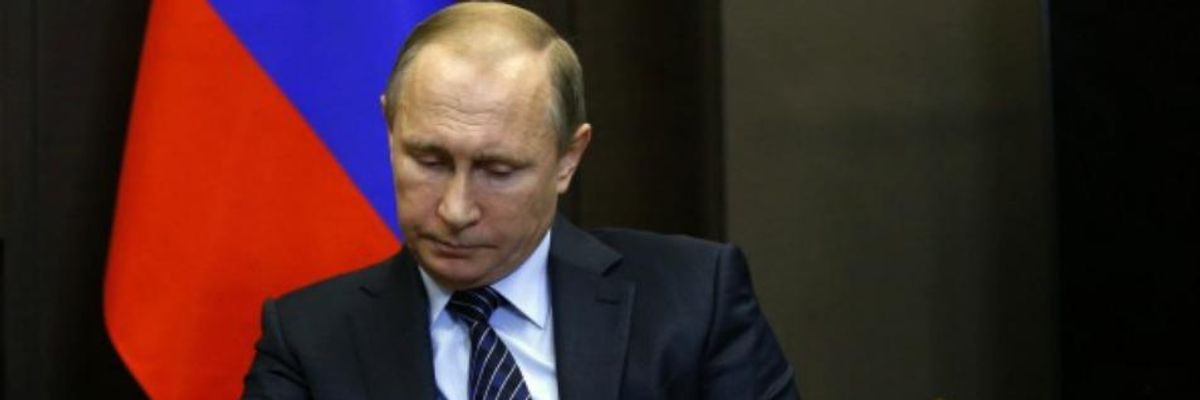Heightening the threat of further escalation, Russian President Vladimir Putin ordered the deployment of sophisticated anti-aircraft missile systems to Syria on Wednesday, saying the measure was necessary to "ensure flight safety" after Turkey shot down a Russian warplane on Tuesday.
The S-400 missile systems will be sent to Russia's Hemeimeem air base, located roughly 30 miles south of the Turkish border in Syria's coastal province of Latakia. The systems are capable of targeting jets with "deadly precision," AP notes.
Russia also verified on Wednesday that the navigator of the fighter jet is "alive and well" after a successful 12-hour rescue operation by a Syrian Special Forces unit. However, further complicating matters, the plane's pilot and a marine sent in to rescue the airmen were both killed Tuesday, reportedly by rebel fighters armed with U.S.-supplied missiles.
In addition to the S-400s, Russia has also ordered its missile cruiser Moskva with its long-range air defense system to move closer to shore, Defense Minister Sergei Shoigu said Wednesday, so that it may be "ready to destroy any aerial target posing a potential danger to our aircraft." Shoigu told a meeting of military officials that Russian bombers will also now be accompanied by fighters during all combat missions in Syria.
Amid these increasing military tensions, the United Nations and NATO both issued statements calling for restraint on Tuesday.
NATO secretary general Jens Stoltenberg asked for "calm and de-escalation," while maintaining that the alliance backs Turkey's accounting of events. Because Turkey is a NATO member, if Russia were to retaliate, NATO would be obligated to intervene.
Though NATO allies have rushed to Turkey's defense, both experts and Russian officials are pointing to the country's complicity in the growth of the Islamic State. As AP reports:
Foreign Minister Sergey Lavrov, who canceled his planned trip to Turkey after the incident, described the shooting down of the Russian plane as a "planned provocation."
He said the Turkish action came after Russian planes successfully targeted oil infrastructure used by the Islamic State group, alleging that Turkey benefited from the oil trade.
Lavrov also said that Turkish territory was used by "terrorists" to prepare attacks in other countries, but offered no details.
He said that Russia "has no intention to go to war with Turkey," but added that Moscow will re-consider its ties with Ankara.
As for what's next, Putin told reporters Wednesday, "After what happened yesterday we can't rule out [the possibility of] new incidents, and, if such incidents occur, we will have to react in one way or another."

